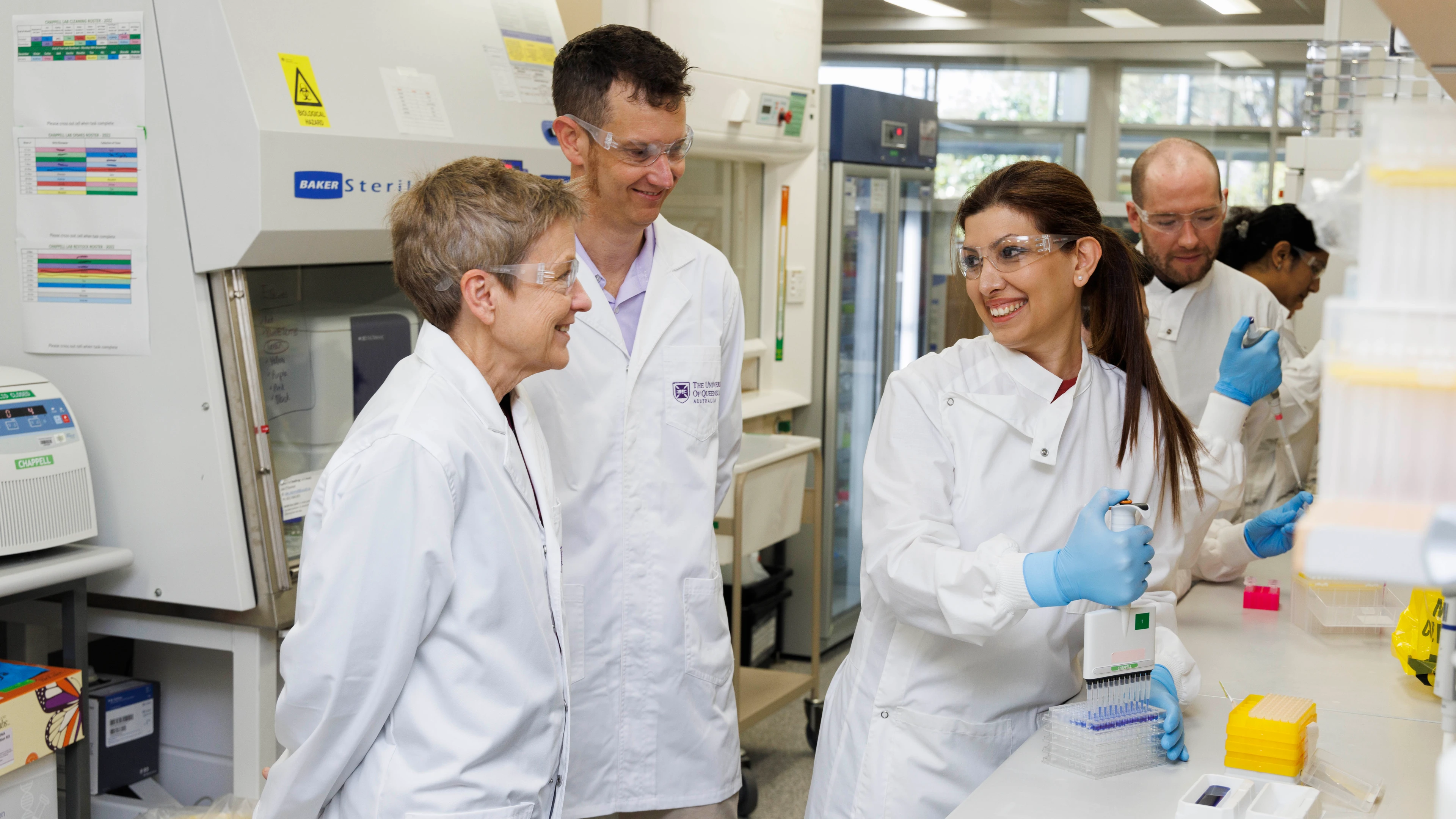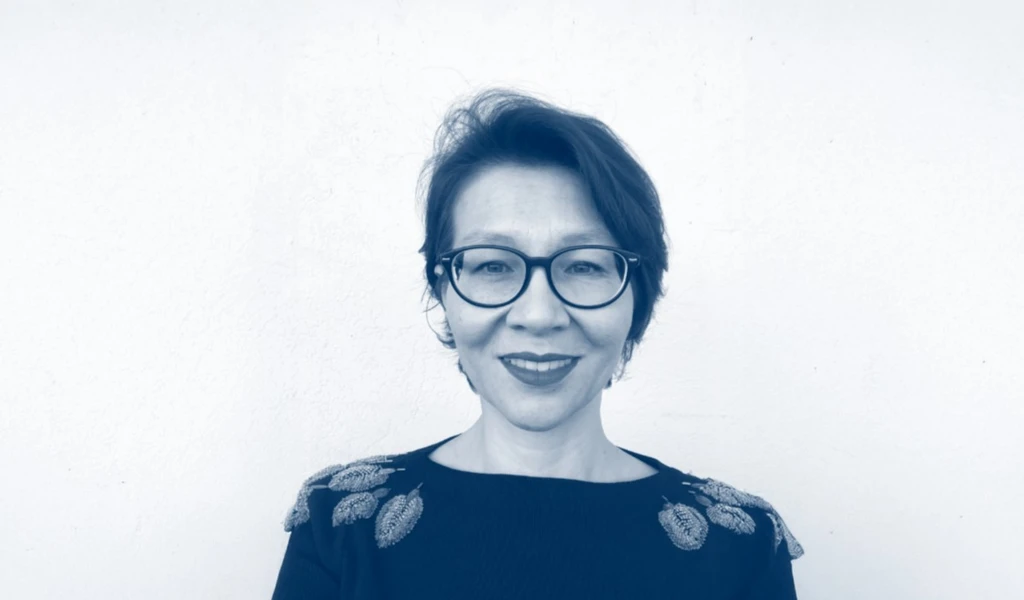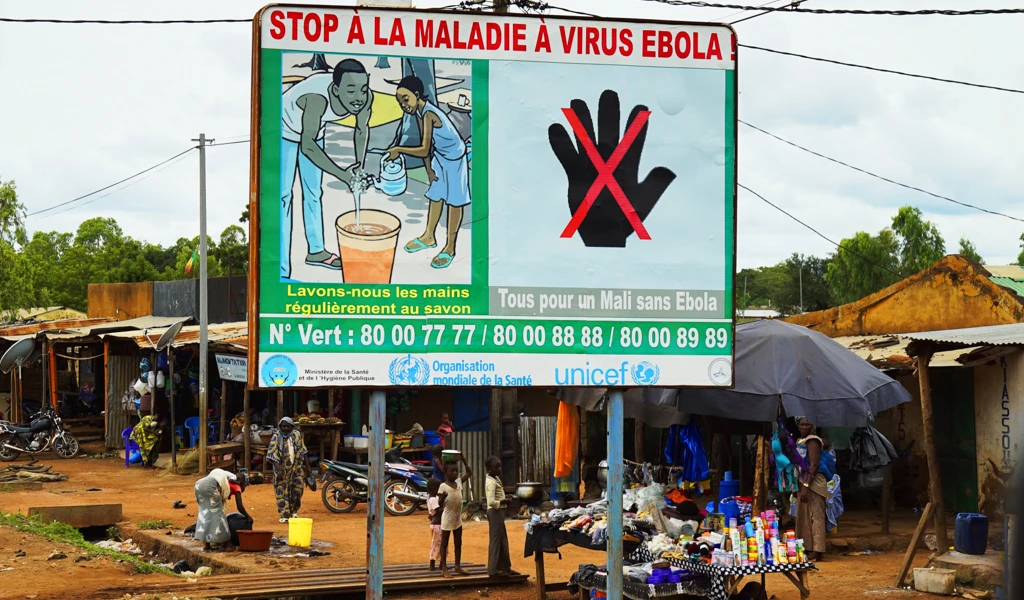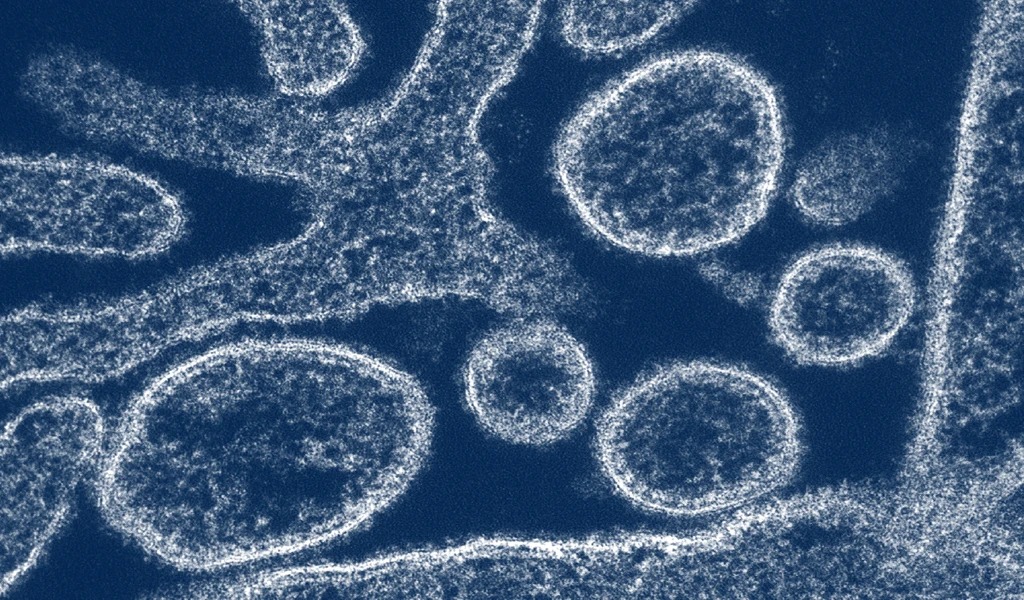Scientists take aim at next pandemic threat with new molecular clamp rapid-response vaccine platform

CEPI to provide US$5.7 million (AU$8.5 million) to support Phase I testing
University of Queensland vaccine developers upgrade molecular clamp technology for use against Disease X
Vaccine platform holds promise for the rapid development of vaccines against future infectious disease epidemics, potentially within 100 days of a new virus emerging
Oslo, Norway; November 25, 2022: CEPI, the Coalition for Epidemic Preparedness Innovations, is to put US$5.7 million (AU$8.5 million) into the development of the University of Queensland's (UQ's) second-generation molecular clamp vaccine platform aimed at combating the next Disease X. The money will fund Phase I testing of the promising technology for potential use in the global response to future disease outbreaks, including outbreaks caused by novel pathogens.
The Australian Government and R&D sector has played a leading role in the global pandemic response and continues to play a pivotal part in bolstering future pandemic preparedness, including through its support for CEPI and for the advancement of UQ's cutting-edge molecular clamp technology.”
"Clamp2": a second-generation molecular clamp vaccine
The "molecular clamp" technology works by "locking" viral proteins—involved with infection and cell entry—into a shape that allows for an optimal immune response. Before the invention of this technology, "locking" the shape of viral proteins was very difficult to achieve.
This process requires the sequence of the viral protein, which can be determined from its genome and is then coupled with an optimised "clamp" sequence. The resulting synthetic antigen can then be purified and rapidly manufactured into a vaccine.
After months of research, Associate Professors Dan Watterson and Keith Chappell, together with the UQ clamp vaccine team, have successfully re-engineered a previous molecular clamp technology and demonstrated its promise and safety in laboratory testing.
The UQ team has also designed a second-generation version of their SARS-CoV-2 vaccine using this upgraded molecular clamp technology and will soon begin Phase I testing to demonstrate safety and benchmark immunogenicity against approved COVID-19 vaccines. This study is designed to prove the underlying concepts, safety, and immunogenicity of the upgraded molecular clamp technology only.
The UQ team has demonstrated true grit and the power of the scientific process to yield tangible advances in vaccinology. This second-generation molecular clamp vaccine technology could provide the world with an invaluable tool to rapidly respond to future pandemic threats.
Molecular clamp lessons learned
CEPI first entered into a partnering agreement with UQ in January, 2019, announcing up to US$10.6 million to develop a "molecular clamp" vaccine platform, a transformative technology that enables targeted and rapid vaccine production against multiple viral pathogens.
When SARS-CoV-2 arrived on the scene towards the end of 2019, CEPI moved quickly to mobilise its R&D partners with the most promising vaccine platform technologies, including The University of Queensland, to begin work to develop vaccines against this emerging coronavirus.
By January, 2020, CEPI asked the UQ team to pivot its work to begin testing the molecular clamp technology against SARS-CoV-2. By July, 2020, the UQ team had begun clinical testing of the vaccine candidate, which provided positive safety and immunogenicity data.
Unfortunately, UQ scientists discovered that a constituent of the vaccine candidate also resulted in diagnostic interference with some HIV tests, and so decided to halt further development of their COVID-19 vaccine candidate. Importantly, this was not caused by an HIV infection but was rather an unforeseen cross-reaction. Because it would not have been suitable for broad deployment, the UQ team decided at that point not to progress the COVID-19 vaccine candidate into Phase II/III clinical trials.
Nevertheless, CEPI believed that the concepts underlying UQ's molecular clamp technology showed great promise. It has continued to support the UQ team to resolve the issue of diagnostic interference so that the platform can be developed for use against other diseases in the future, potentially within 100 days of a new virus emerging.
We have been able to validate the Clamp2 platform in the laboratory and show that it is equivalent to the original platform across multiple virus families including influenza virus, Nipah virus and SARS-CoV-2.
Enabling equitable access
As part of CEPI's commitment to enabling equitable access, UQ agrees that vaccine candidates produced using their platform technology will be available in an outbreak situation to populations at risk including in low-income and middle-income countries.
Jane Halton, Chair of CEPI, said: "As the COVID-19 pandemic has shown, we must have a diverse portfolio of vaccine technologies at our disposal if we are to be able to rapidly respond to future viral threats, and prevent them for spiralling into pandemic-level events. The Australian Government and R&D sector has played a leading role in the global pandemic response and continues to play a pivotal part in bolstering future pandemic preparedness, including through its support for CEPI and for the advancement of UQ's cutting-edge molecular clamp technology."
Dr Melanie Saville, Executive Director of Vaccine R&D at CEPI, said: "The UQ team has demonstrated true grit and the power of the scientific process to yield tangible advances in vaccinology. This second-generation molecular clamp vaccine technology could provide the world with an invaluable tool to rapidly respond to future pandemic threats. CEPI is now implementing its $3.5 billion pandemic plan, which includes substantial investments in multiple platform technologies. These investments will help the world respond to the next Disease X and compress vaccine development timelines down to 100 days, so that we can mitigate the devastating economic and human costs of epidemic and pandemic diseases."
Associate Professor Keith Chappell, leader of UQ's Rapid Response Vaccine Pipeline, said: "We have been able to validate the Clamp2 platform in the laboratory and show that it is equivalent to the original platform across multiple virus families including influenza virus, Nipah virus and SARS-CoV-2. Pre-clinical testing had shown the ‘Clamp2' platform was meeting all expectations, producing stabilised antigens and inducing strong neutralising immune responses. This progress has been possible through the continuing support from CEPI, the Queensland and Australian Governments and philanthropic partners."
---ENDS---
About CEPI
CEPI is an innovative partnership between public, private, philanthropic, and civil organizations, launched in 2017, to develop vaccines against future epidemics. Its mission is to accelerate the development of vaccines and other biologic countermeasures against epidemic and pandemic threats so they can be accessible to all people in need.
Prior to COVID-19, CEPI's work focused on developing vaccines against Ebola virus, Lassa virus, Middle East Respiratory Syndrome coronavirus, Nipah virus, Rift Valley Fever virus and Chikungunya virus — it has over 20 vaccine candidates against these pathogens in development. CEPI has also invested in new platform technologies for rapid vaccine development against unknown pathogens (Disease X).
CEPI has played a central role in the global response to COVID-19, supporting the development of the world's largest portfolio of vaccines against SARS-CoV-2 and its variants with a focus on speed, scale and access, as well as co-leading COVAX, the global initiative to deliver fair and equitable access to COVID-19 vaccines. CEPI is also the world's leading funder of R&D for broadly protective coronavirus vaccines which could protect against future variants of COVID-19 as well as other coronaviruses with epidemic and pandemic potential.
CEPI has embarked upon an ambitious US$3.5bn five-year plan — called CEPI 2.0 — to dramatically reduce or even eliminate the future risk of pandemics and epidemics. Central to the plan is CEPI's goal — supported by the G7 and G20 — to compress the time taken to develop safe, effective, globally accessible vaccines against new threats to just 100 days. Achieving this ‘100 Days Mission' would give the world a fighting chance of containing a future outbreak before it spreads to become a global pandemic. Read the plan at endpandemics.cepi.net/
Follow our news page for the latest updates. Follow us @CEPIvaccines, @DrRHatchett, and LinkedIn.
About The University of Queensland
The University of Queensland research has global impact and is delivered by an interdisciplinary community of more than 1,500 researchers at 6 faculties, 8 research institutes and 100+ research centres. UQ consistently ranks among the world's top universities, reflecting UQ's global standing, the high quality of our research and teaching and our reputation for excellence.
Media Contacts
CEPI
[email protected]
+44 7387 055214
University of Queensland
[email protected]
+61 429 056139.
Video, audio and images are available on Dropbox.


